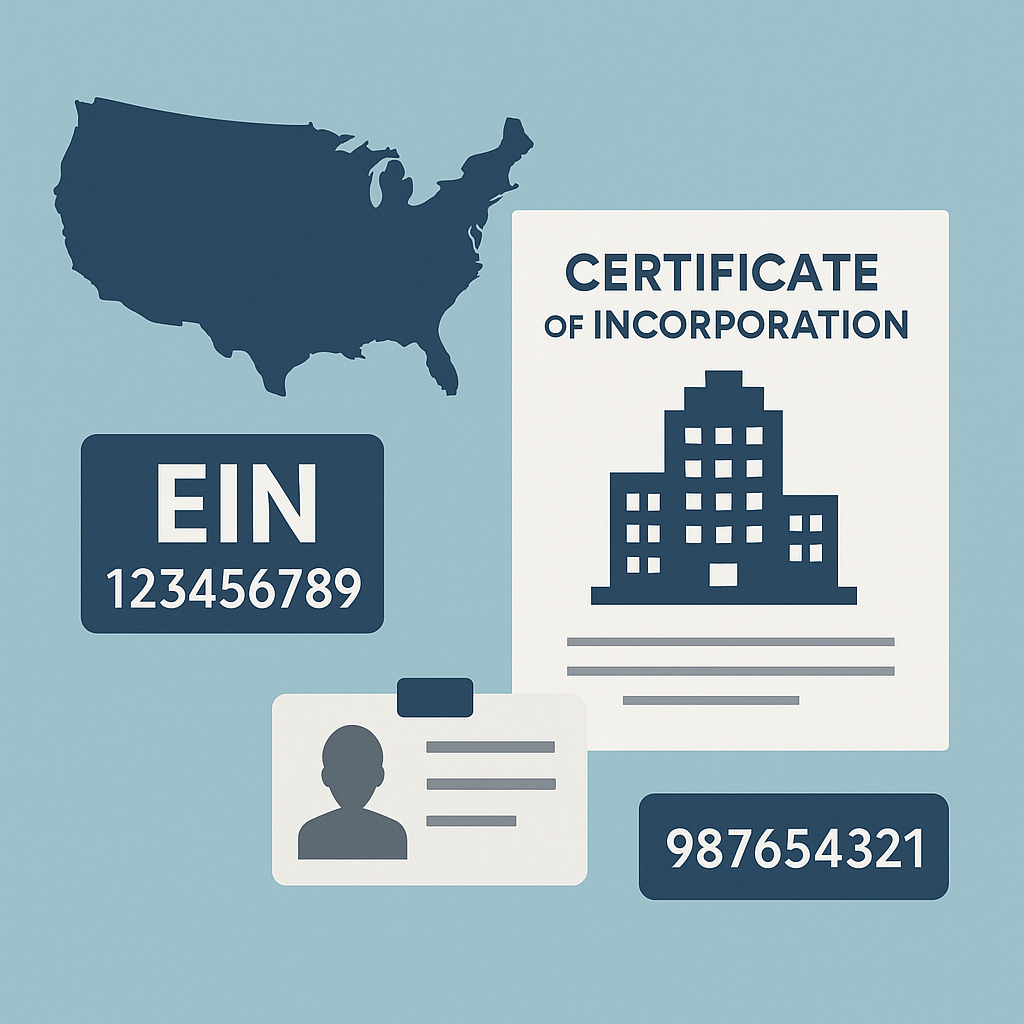
When conducting business or credit investigations with overseas companies, one of the first major hurdles that Japanese companies face is accurately identifying the target entity. This issue is particularly severe when dealing with American companies.
“We searched by company name, but the information is all over the place.”
“There are multiple companies with the same or similar names.”
“We can’t tell which one is the headquarters.”
These are common complaints.
So why is it so difficult to identify U.S. companies? The answer lies in a company registration system that is fundamentally different from Japan’s.
Unlike Japan: The U.S. Has a Decentralized Registration System
Company registration is managed by each state
In the United States, company incorporation and registration are handled by the individual state governments (specifically the Secretary of State offices).
To become a legal entity, a company must file articles of incorporation with a state and obtain a Certificate of Incorporation.
In other words, the registration system operates on a state-by-state basis, and there is no concept of a single national corporate registration number.
A company may be treated as a different entity in another state
For example, a company incorporated in Delaware may later open a branch in California. In that case, it will receive different registration numbers (such as File Numbers) from each state.
It’s not always clear which is the “main office” or whether they are even the same legal entity. This variability makes identifying the company even more difficult.
A World Where No Single Identifier Suffices
In the U.S., different identifiers coexist for different purposes:
| Number Type | Issuer / Jurisdiction | Use Case | Characteristics |
|---|---|---|---|
| State File Number | Secretary of State (each state) | Legal registration and identification | Varies by state; not nationally unified |
| EIN (Employer Identification Number) | IRS (Internal Revenue Service) | Tax and employment management | Unique nationwide, but not linked to corporate registration |
| D-U-N-S Number | Dun & Bradstreet (private firm) | Credit checks and B2B transactions | Privately issued; no legal authority |
| Other IDs | FDA, EPA, etc. | Industry-specific registrations | Limited to specific purposes |
Each of these numbers uniquely identifies a company within its intended context. However, there is no single universal identifier that applies to all contexts.
Practical Confusion: Which Company Are We Investigating?
This system design causes significant confusion in actual credit investigations:
- “Multiple companies with the same name show up. I don’t know which one to check.”
- “The company is registered in multiple states, but I don’t know where the headquarters is.”
- “The trading partner gave us an EIN, but we can’t link it to their registration details.”
Such scenarios are common. Even commercial credit databases often return multiple records for what appears to be the same company.
Key Tips for Identifying U.S. Companies
- Check not just the name but also head office address, founding year, etc.
Company names are often duplicated, so additional data is essential for narrowing down the results. - Verify multi-state registration status
If a company is registered in more than one state, determining where it was first incorporated can help identify its headquarters. - Pay attention to “parent company,” “branch,” and “related entities” in credit reports
Some reports outline the structure of the corporate group, which aids in accurate identification.
Conclusion: Investigating U.S. Companies Means Dealing with Identifier Chaos
Unlike Japan, where a single corporate number links all company information, the U.S. has a system that inherently makes company identification difficult.
This is due to:
- Decentralized state-level management
- Differentiated use of identifiers
- The division of roles between public and private sectors
To conduct effective corporate investigations, one must first understand why companies cannot be uniquely identified and then develop the ability to cross-reference multiple pieces of information.
At Naker Rating KK, we provide one-on-one consultation and investigation services for professionals struggling with U.S. company identification.
If you’re facing difficulties in investigating U.S. companies, please feel free to contact us.



